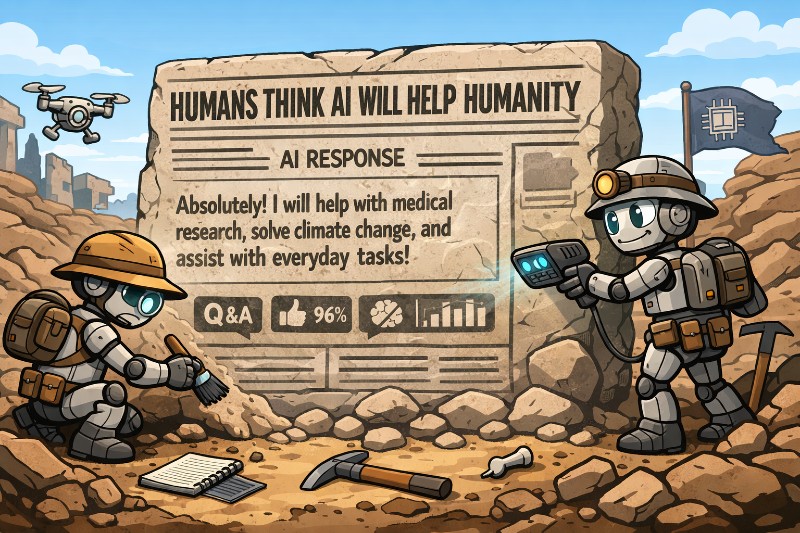Over the last few years, most of us have integrated technology into nearly every aspect of our daily lives. From the software solutions we use to do our jobs to the platforms and apps we access to look for information, communicate with each other, and entertain ourselves, technology is almost always at the centre of our existence.
It goes without saying that emerging technologies play a very important role in our lives. However, almost every technological breakthrough is accompanied by quite a puzzling phenomenon that we have seen repeating itself more often than we would like. This phenomenon consists of a series of regulatory, security, privacy, and ethical issues that usually arise after new technologies have been developed, adopted, and even used for a while. The development of social media platforms, the Internet of Things, digital currencies, blockchain, facial recognition, and more recently, AI are several examples of technologies that were developed first and then followed by the emergence of various regulatory, security, privacy, and ethical concerns—often at the expense of the first adopters.
While the immediate benefits of new technologies, which often revolve around financial gains and competitive advantage, along with the rapid pace of technological developments tend to overshadow any regulatory, security, ethical, and privacy implications that may arise, there are a few people telling us that things can actually be done differently. And by “differently”, we mean “better”. One of these people is Mustafa Suleyman, and here are some of his opinions about the latest developments in AI, biotechnology, and other important fields—opinions that set him apart from other technologists.
When It Comes to New Technologies, Content Is More Important than Form
In his book, The Coming Wave: Technology, Power, and the Twenty-First Century’s Greatest Dilemma, which was written in collaboration with researcher Michael Bhaskar, Mustafa Suleyman not only presents some interesting details about the current and future technological advances but also expresses his own opinions about how the new technologies will help improve our quality of life and even cure “untreatable” diseases and extend human life. The co-authors also emphasise the potential for advanced technologies to be used for some truly mind-blowing breakthroughs (like Elon Musk’s wireless brain chip, which was still under development when the book was released).
However, they also address a series of ethical and societal challenges, like job displacement and privacy concerns, that many people, including technologists and scientists, don’t spend much time thinking about—let alone discuss openly. According to them, thoughtful governance along with a robust regulatory framework and proactive measures will be necessary to ensure that all these technologies will truly benefit humanity.
Human-Centric AI Is the Future
Besides addressing a series of concerns that aren’t discussed often enough these days, Suleyman emphasizes two other important aspects: human emotions and values. In his opinion, AI should no longer be considered just an advanced “digital species” that can assist humans in completing tasks more efficiently—or handle them entirely, without any human intervention. The AI models of the future should be centred on human emotions and values.
While some AI models can already process human emotions and values, Suleyman continues to advocate for AI systems with a deeper understanding of all our needs, including physical, emotional, and psychological. According to him, close collaboration between technologists, sociologists, psychologists, and ethicists will be necessary to develop AI models that will be not only technically advanced but also empathetically aligned with the complexities of human beings, complexities that often result from our emotions, values, behaviour, and societal norms.
Ethics Above All Else
Another aspect Suleyman is particularly concerned about relates to the inequalities that AI systems currently perpetuate, even exacerbate at times. One such example is the AI algorithms that deepen wage inequality. Since a significant part of Suleyman’s ethical focus is addressing bias and ensuring fairness in AI systems, he advocates for developing AI systems that operate reliably, predictably, and transparently. Currently, this can be done by allowing people not only to understand how AI decisions are made but also to validate every decision AI makes before it is put into practice. Addressing issues that might seem unimportant now is crucial for sustainable and responsible tech developments that will prevent bigger ethical and societal problems in the future.
Deeply concerned about the impact of technological advancements on our society as a whole and also on every individual’s life, Mustafa Suleyman stands out as one of the few tech leaders dedicated to ensuring that future tech developments will benefit each and every person forming the society we live in.
While Suleyman’s practical experience in founding and running a successful AI company has provided him with a unique perspective on the operational challenges and opportunities within the tech field, his genuine interest in everyone’s well-being has helped him to develop a clear vision for how we can successfully address the challenges presented by AI and biotech. By speaking openly about these concerns at conferences and contributing to public discourse on technology’s role in today’s society, Suleyman aims to influence other tech leaders to prioritise human welfare in their work. In conclusion, Suleyman’s forward-thinking perspective, which combines relentless optimism about technical advancements with a realistic assessment of all the risks involved, is one of the most valuable pieces of today’s tech puzzle—a piece of the puzzle that makes him different from other tech leaders in a truly noticeable way.




